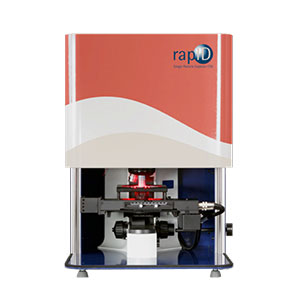The Bio Particle Explorer from the Leibniz Institute of Photonic Technologies (IPHT), which can be used to quickly characterize germs such as bacteria, fungi and yeasts, has been awarded the Innovation Village Award at Photonics Europe 2014 in Brussels.
 The jury honored the marketable invention with third place and 500 euros in prize money. The criteria for selection were the level of innovation, relevance to society, potential marketability and the solution approach achieved.
The jury honored the marketable invention with third place and 500 euros in prize money. The criteria for selection were the level of innovation, relevance to society, potential marketability and the solution approach achieved.
The technology underlying the Bio Particle Explorer was researched by the IPHT in collaboration with Friedrich Schiller University in Jena. The Berlin-based company rap.ID has further developed the technology to market maturity. The Bio Particle Explorer uses a spectroscopic measurement process in combination with statistical analysis methods to identify whether, and if so, with which and with how many germs patient samples such as blood, urine, or air and water are contaminated. By comparing the results with a database, comparable to a criminal database, the detected pathogens can be clearly detected within a few hours.
Areas of application include clinical diagnostics, food monitoring and environmental monitoring. Until now, pathogens such as bacteria, viruses and fungi could only be detected by culturing them for several days. DNA analysis is faster, but can only search for bacteria determined in advance.
The device was developed as part of the Biophotonics research focus funded by the German Federal Ministry of Education and Research (BMBF) and the European Photonics4Life network of excellence. The "Optical Neuro Monitor" from the company HemoPhotonics, which was also developed as part of the network, was awarded 2nd place.

